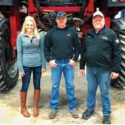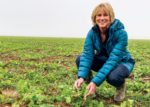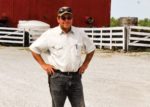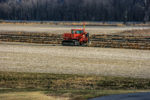Advertise Follow Us
Articles Tagged with ''soil organic matter''
Indiana father-son no-till team seek to balance productive yields with profitability.
Read More
What I've Learned from No-Tilling
No-tilling, Cover Crops Help Tame Troublesome Soils
Abused, heavy clay soils are now almost fluffy and far more productive thanks to careful management focused on improvement.
Read More
What Caught Your Eye in 2018?
These summaries show the most-viewed content for 2018 on the No-Till Farmer website, revealing the hunger no-tillers and strip-tillers have for more information and insights into cutting-edge agricultural practices and equipment.
Read More
Tile, Covers and Manure Tame Tough, Variable Soils
Mark and Phyllis Legan have improved both soil health and crop yields with a highly managed nutrient program and a 100% commitment to no-till practices.
Read More
Make Covers a Forage Option for Better No-Till Profitability
Many cover crops are efficient, effective feed sources for livestock if they’re seeded properly and managed for optimum animal and soil health.
Read More
What I've Learned from No-Tilling
Controlling Water Means Reducing Risk and Pushing Profits
Irrigation and building soil health keeps Darren Grogan’s crops in the water ‘Goldilocks’ zone for maximum production.
Read More
[Podcast] Can I Increase Soil Organic Matter by 1% This Year? – Part 2
In this episode of the No-Till Farmer podcast, brought to you by Montag Mfg., we continue our discussion with Penn State University no-till and cover crop researcher Sjoerd Duiker on the thought-provoking topic of increasing soil organic matter.
Read More
[Podcast] Can I Increase Soil Organic Matter by 1% This Year? – Part 1
In this episode of the No-Till Farmer podcast, brought to you by Montag Mfg., we welcome Penn State University no-till and cover crop researcher Sjoerd Duiker to discuss the thought-provoking topic of increasing soil organic matter.
Read More
Biofertilizers Helping No-Tillers Save Money, Fix Soils and Boost Yields
With a little time investment and a cheap source, soils and crops can benefit from biosolids, compost, biochar, sea plant extracts and other natural products.
Read More











